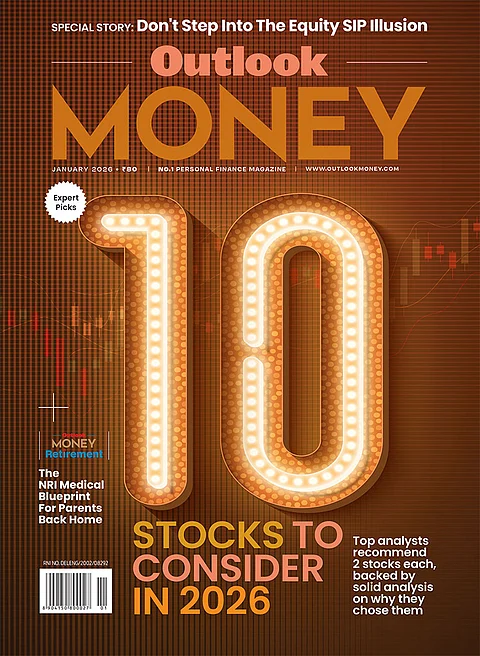Two gardeners, “A” and “B” grow rose plants on their respective patches to sell roses at a higher price come Valentine’s Day. But “B” notices that the price of daisy flowers is going up while it’s going down for the roses. With a view to make some quick money, “B” uproots some of his rose plants and grows daisies there instead. To his dismay, the demand fell for daisies, but increased for lilies, so he planted the latter. “B” went on shuffling like this until he realised that on Valentine’s Day, he hardly had any roses to sell. Chasing short-term trends caused his long-term plan to be compromised while amounting to unnecessary stress. Meanwhile, “A” remained unfazed by the price movements, stuck with his plan and cashed in when the price of roses predictably went up.
This story depicts the human behavior of going after short-term gains, and holds true for many investors. As an investor, it is more sensible to hold a long-term view because equity returns become much more predictable as time goes on. An example of this is seen in the Nifty 50 TRI graph below. While the short-term returns look erratic, it becomes far more predictable in the long run and the chances of losing money become next to nil. Staying put as an investor would have a double benefit of wading through volatility as well as taking advantage of the power of compounding. Yet many investors shuffle their portfolio every time the market corrects, only to register mediocre growth. Like in the case of gardener “B”, constant change to one’s portfolio can jeopardise one’s long-term plan.

Risk-adjusted return is a yardstick used by almost all investors, but no one accounts for the stress caused by constant portfolio reviews. This is where the concept of “stress adjusted return” comes in. Someone who makes 15 per cent compound annual growth rate over three years by reviewing his portfolio every week has undergone much more stress than someone who has done the same by reviewing once in six months. Hence, stress adjusted returns is much higher in the second case, and more often than not the first investor would have exited at the wrong time. Thus, fewer reviews = higher stress adjusted returns. This is very relevant in the current market, especially in small and mid cap space.
Investors who don’t know precisely what they are getting into will be nervous at small corrections. Market experts, on the other hand, will see through short-term noise, stick to the fundamentals and back their research. For example, recently the markets have seen volatility and corrections on the back of various factors such as rise in oil prices, mutual fund recategorisation, geopolitical tension, long-term capital gains tax, etc. But our research suggested that if we hold on to our convictions, a strong earnings season will cause almost all stocks to bounce back.
Thus, we recommend that investors have an investment charter in place and stick to their asset allocation over the long run. Reshuffling must only be considered in case of a long-term story not playing out. Patience and conviction through proper research is the key to one’s portfolio growth and achieving one’s long-term goals.
The author is a Head- Investment Advisory,Motilal Oswal Private Wealth Management (MOPWM)







